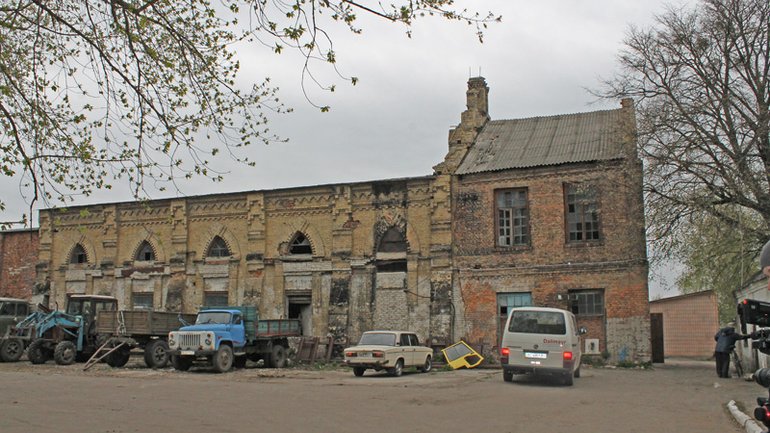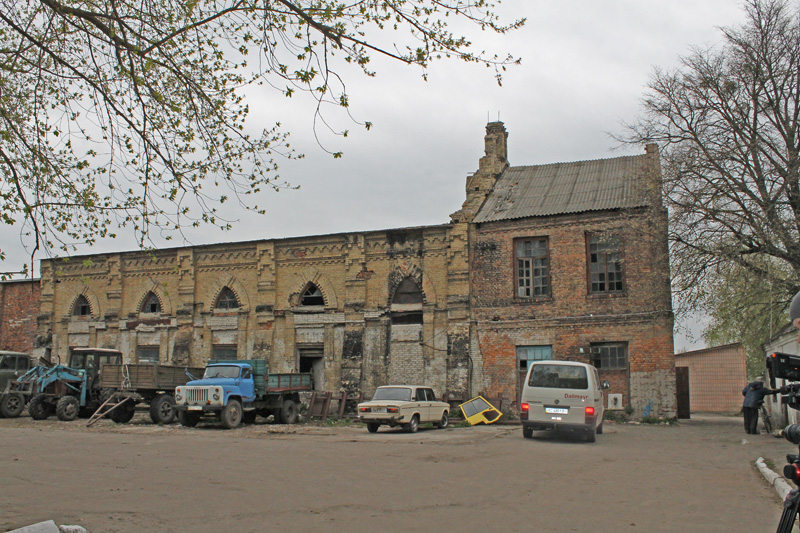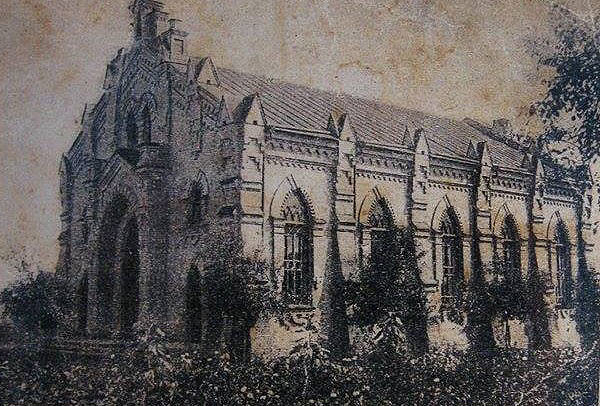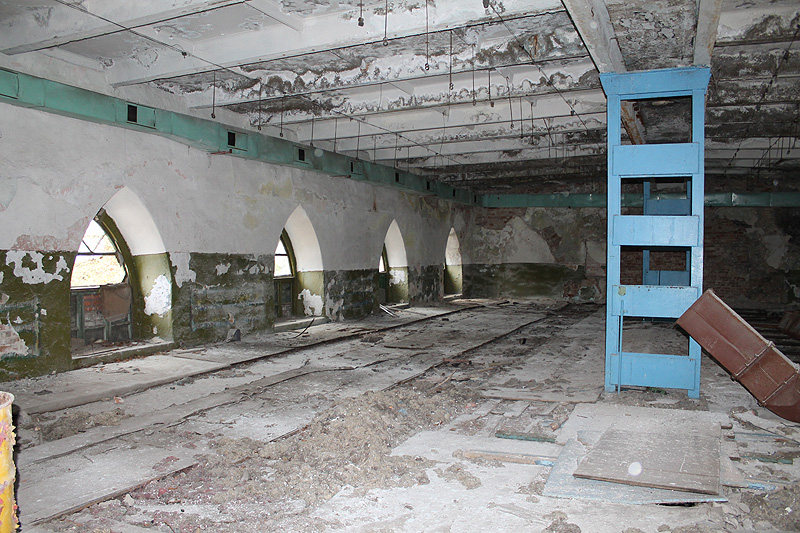Historical memory or legal rights: Baptists in Volyn struggle for the future of an ancient church

The ruins of the old church in the district center of Rozhische in Volyn have become the subject of controversy between the Protestants and the Orthodox. The temple was built in the nineteenth century by the Baptists, “the Soviets” expropriated and placed manufacturing plants in the church. Unfortunately, the troubles for the church did not end in the time of the Independence, the premises went into private hands and were further used for other purposes than intended. But currently the owner has decided to transfer them to the Orthodox eparchy.

The flowering of Protestantism in Rozhische falls for the 70-80-ies of XIX century, until its end the city with a population of over three and a half thousand residents had built two churches, a Lutheran and a Baptist church. The first has left now only memories and some old photographs. The Baptist church remains in the form of destroyed walls, as in Soviet times there were originally the barracks, and then a woolen factory “Dynamo” was located. Actually in the neighborhood of Vovnyanka the memory of Soviet barbarism and lack of spirituality remains as devastated premises of the temple. A five-meter finishing building was built, changing the appearance of the construction. And the floor was added in the middle to increase the craft room. On the second floor once can see arched windows near the floor – remains of the church, where, according to the local pastor Vadym Bandura, a day service took place once to four times and almost a thousand of people gathered for each of them.

After stopping the wool production, a former church changed owners several times. Now this is LLC “Woodland Ukraine,” a sawmill company led by Bogdan Kolesnik, former head of Volyn Regional Forestry and Hunting, one of the co-owners is MP Sergei Martynyak. At the end of 2016, the building passed to Volyn Diocese of the UOC-KP.
“God's house should be a house of God,” comments the spokesman of the Volyn Diocese UOC MP Konstantin Marchenko. “The owner of the premises is an Orthodox man, and therefore gave the room to the diocese. Baptists never turned either to him or to the diocese regarding the building. The Diocese intends to restore the premises to the vest of its ability and is now looking for proactive priest who would have embarked on such a complex matter. It will be the orthodox Church of St. Sergius the Obedient.”
Of course, the Baptist community considers unacceptable the decision on the future of the church. Vadym Bandura, the pastor of the district center Baptist community stresses: the Baptist community intends to fight for a memorial, as it is a historical memory. Therefore, an official statement was issued on behalf of the organization CSO “Public council for development of Rozhische” to Rozhyshche district administration for support, have contributed to a given conservation status to the building which is an architectural monument. “This church is one of the oldest in Rozhische, so it is not a fight for property and the preservation of history and architecture" - said Vadim Bandura. “We have very good interfaith relations in Rozhische. I discussed the future of the church with the local priest of the UOC-KP archpriest Basil Shnyak. He said that the parishioners of this denomination in Rozhische are satisfied with the existing church so for it is not advisable for the diocese of the UOC-KP to invest so heavily in the reconstruction of the premises. Three months ago he promised to discuss the issue with Metropolitan Mykhailo of Lutsk and Volyn, but he has not fulfilled the promise so far. NGOs and local authorities of Rozhyshche are supporting us in our intentions, as well as Volyn historians.”
The initiative to give new life to the Lutheran church was put forward by members of NGO “My father's house.” They offered to turn it into a multicultural center and even made a project with the Lutsk architectural bureau. According to the head of the NGO, former head of Rozhyshche Regional State Administration Vadym Dulyuk, since it is impossible to reconstruct the original appearance of the church, a conference hall for delegations, classes to teach children, and also a hostel on the ground floor can be arranged there. They began to seek to attract grant funds for the project. This center for Rozhische would be very important, because the city once was multinational: in the XIX - early XX century, most people were not Ukrainian, and the Germans and Jews. First, colonists, then waiting for deportation and Jews - mass executions during the Second World War. According to archival data, about 3.5-4 thousand Jews found eternal rest in the mass graves of Rozhische. Czechs also lived in the area of Rozhische.

Vadym Dulyuk emphasizes: during the electoral process in 2015 one of the owners of the premises, MP Serhiy Martynyak, declared his intention to transfer the premises NGO “My Father's House.” He does not understand why another decision was taken so suddenly. “We contacted the owners in 2015, with an official letter, as was available. Non-governmental organization was created specifically to deal with the church.”
Finally, neither the community of Baptists, or NGO have any legal grounds to claim the building. The good will and understanding of the need to preserve the history is required – both by the owners and the Volyn Diocese of the UOC-KP. “We need to fight. Joint action by social organizations, historians, religious communities, the City Council, appeals to the bishops who have spoken about it with the leadership of the UOC-KP at the highest level are likely to be efficient. City officials of Rozhische support us, so maybe the diocese of the UOC-KP agrees to receive a plot of land in the city, in this state of the building it is certainly cheaper and easier to build a new church.”
Pastor Vadym Bandura notes and that, of course, arranging the church as an Orthodox Church will lead to final loss of the authentic architecture, because the Orthodox rite involves certain architectural features, interior decoration.
Accordingly, the result is the loss of historical memory. “It is the respect for history that compels us to attract public attention to these events. We have a big house of prayer in Rozhische, the construction was recently completed, so that the community cares not for another room, but for the preservation of the memory of the past. But the events of recent months make us ponder: is it not an attempt to completely erase history? I am a supporter of resolving issues peacefully. I think that we will reach agreement and understanding.”









